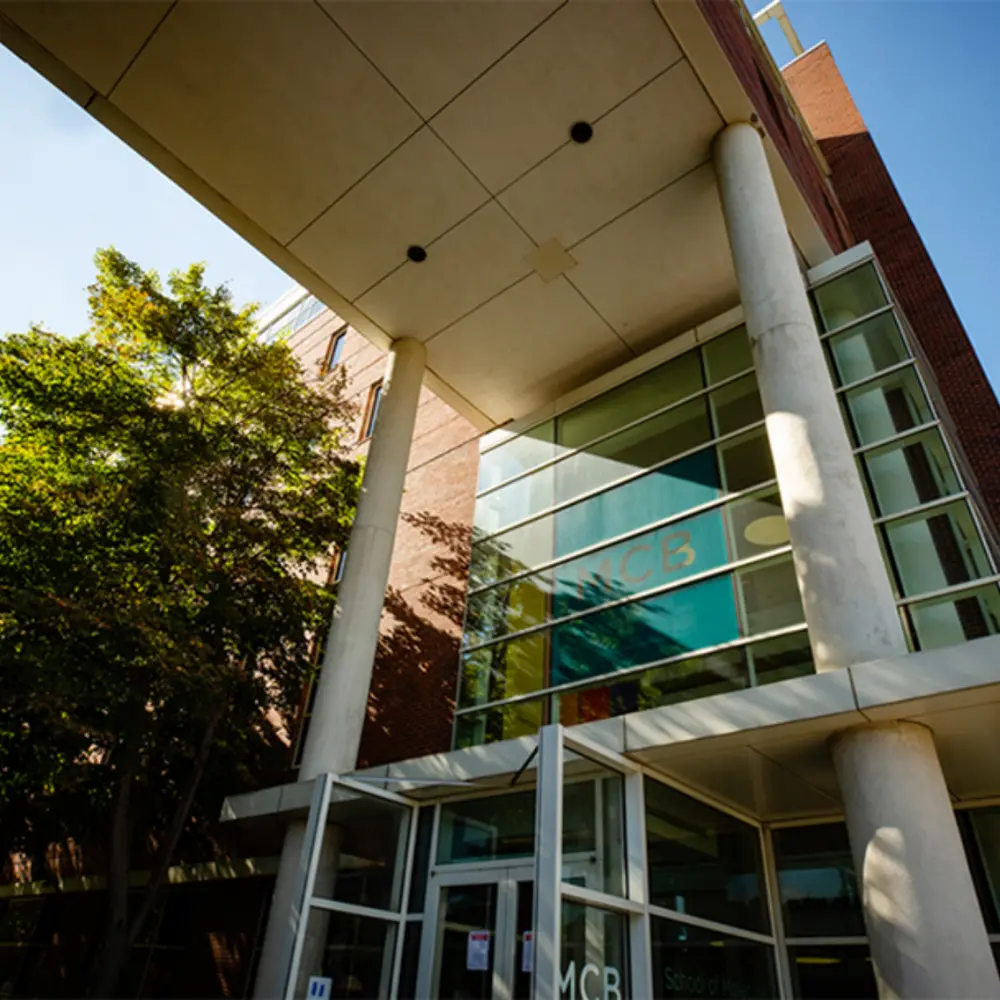
Dear members of the MCB community,
Since I was selected to serve as director of the School of Molecular & Cellular Biology in 2017, I have sought to be a goal-oriented leader who is consultative, transparent, and collegial. As I eagerly look ahead to the next five years, my overall mission, as it was when I first stepped into this role, is to apply my knowledge, experience, and passion for education, research, and innovation, to make a meaningful impact on school-specific goals as well as campus-wide initiatives through interdisciplinary collaborations.
One of my first actions as director was to establish the Strategic Advisory Committee, made up of eight faculty members from our four departments: Biochemistry, Cell & Developmental Biology, Microbiology, Molecular & Integrative Physiology. This stellar group developed a broad vision for future research directions and identified key areas for strategic investment: brain plasticity, immunology, microbiome, RNA biology, cancer and metabolism, stem cells and regeneration, and emerging infectious diseases, as well as the associated genomics, and informatics and data sciences. Committee members played a central role in developing proposals which led to successful hiring of a dozen new MCB faculty members in key strategic areas within four years.
We will continue to recruit multiple tenure-track or tenured faculty members in critical thrust areas defined by the Strategic Advisory Committee. Our goal is to hire 15 faculty members in the next five years to maintain about 65 faculty members over this period. These additional hires will not only contribute to our fundamental understanding of life, but also will have direct or indirect translational implications and applications that strongly align with the health-centric strategic planning of the campus. We are looking forward to partnering with several units, such as the Cancer Center at Illinois and Carle-Illinois College of Medicine, to achieve this hiring goal.
MCB is the largest and most successful NIH-supported biomedical unit at the University of Illinois Urbana-Champaign. Building and maintaining a superb biomedical research infrastructure has been a key goal of my tenure and I remain committed to focusing on this also in the next five years. Achieving this goal requires the nurturing of partnerships across the school and campus. Thanks to the leadership of Satish Nair, professor and head of the Department of Biochemistry, and funding support from the NIH and several campus units, we installed a cryo-electron microscope on campus during the pandemic. The Titan Glacios Cryo-EM is revolutionizing our ability to solve structures of important biological macromolecules. Work is also under way with our partners such as the Carver Biotechnology Center and the Materials Research Laboratory, on enhancing current equipment and adding new shared equipment and facilities in the coming years. Stay tuned on news about those additions!
In the area of undergraduate education, I’m proud to say the school launched the new neuroscience major this year and are actively recruiting students to the program. MCB is piloting a new, semester-long Course-based Undergraduate Research Experience. This spring, students enrolled in MCB 493-REM are using phage discovery to conduct authentic scientific research. Our instructional team also has been hard at work developing a BS degree program in MCB-Data Sciences that will offer broad collaborative opportunities for undergraduates to engage with big data in the context of genomic biology. Thanks to our alumni and friends, we have increased the number of Summer Undergraduate Research Fellowships (SURFs) awarded to students who are interested in working in faculty labs. We are committed to increasing the participation of students who come from groups historically not represented in STEM and lab research. Together with the School of Integrative Biology, we have ramped up our efforts to attract exceptionally talented students to our undergraduate biology program by awarding more Biology Experience, Scholarship, and Training (BEST) scholarships and will continue to fundraise to support this worthy program.
Pertaining to graduate education, the course-based MS degree program in Molecular & Cellular Biology, launched in 2019, provides an avenue for students looking to acquire skills to be competitive in the biomedical job market or seeking additional preparation prior to applying to medical schools. I’m excited to see this program grow in enrollment in the coming years as well. With our PhD degree programs, I charged a faculty committee with reevaluating and revitalizing our graduate core curriculum to improve the experience of our students and align our PhD training to fit the needs of the modern STEM workforce. The recommendations of this committee will be executed over the next couple of years.
We will continue on our path to promote diversity, equity, and inclusion at all levels. In addition, we plan to conduct school-wide climate studies to gather student input and track student welfare. Our goal is to build a strong community of faculty and staff and students by organizing activities, such as faculty & staff appreciation day, faculty and student retreats, open houses in the labs, and more.
This letter only covers a portion of what we’ve accomplished and are contemplating for the coming years. The Strategic Advisory Committee will be developing a strategic plan with myself and department leaders and we will be seeking comments and suggestions from faculty and staff before it is finalized. I look forward to continuing the discussion with you. Feel free to email me with feedback and ideas. I will also share more updates in future school e-newsletters.
Sincerely,
Milan Bagchi, Deborah Paul Endowed Professor of Molecular and Cellular Biology and Director, School of Molecular & Cellular Biology